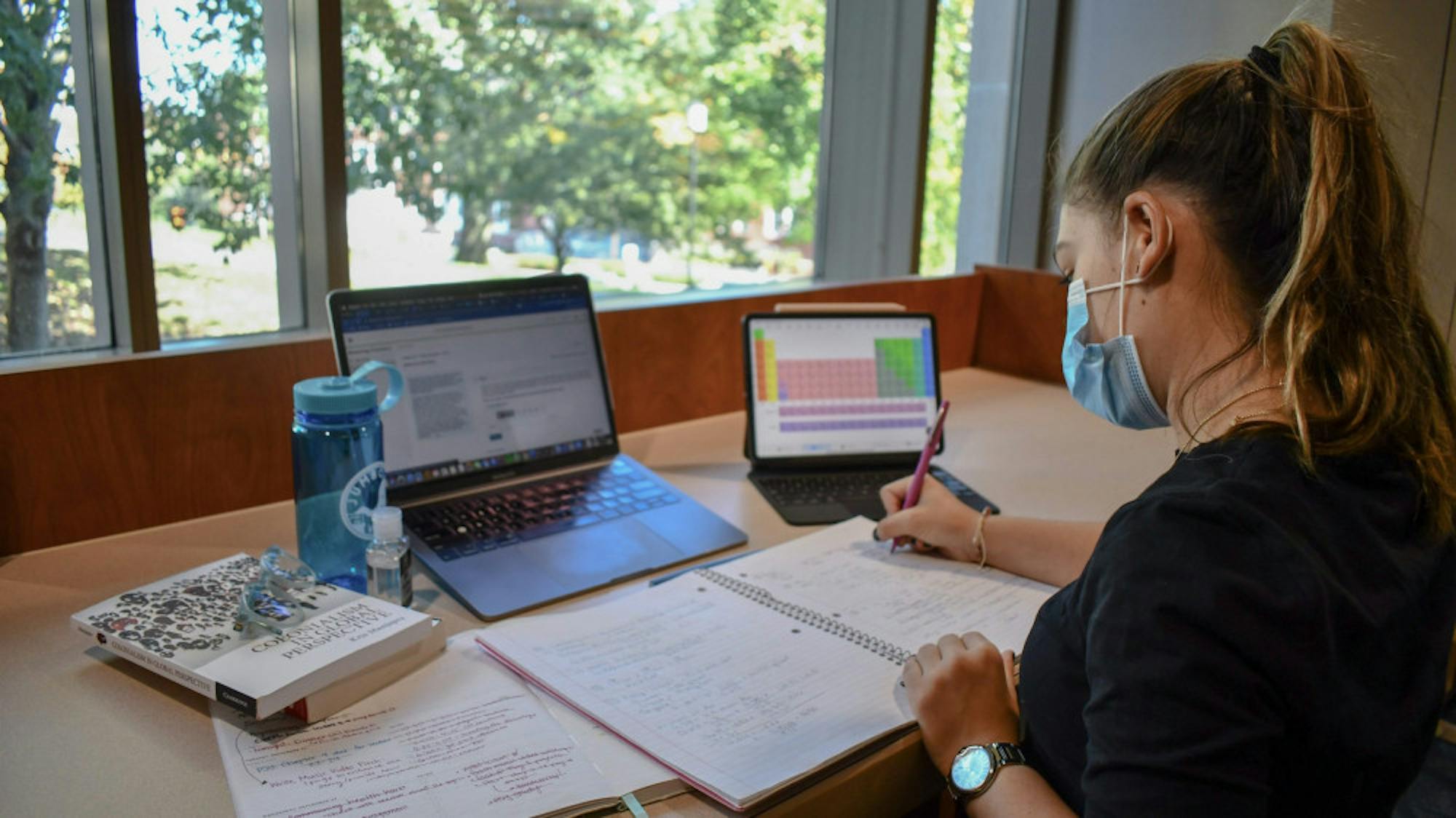As the spring semester begins, students across the country settle back into the new normal of life during a pandemic. Even as we commence our third semester online, students and professors alike continue to adapt to virtual learning environments; the pervasive difficulty and unpredictability of these times has not diminished. In response to these enduring challenges, Tufts faculty must continue to support their students, using feedback from the fall semester to adjust learning experiences and tailor syllabi.
In recognition of the difficult circumstances that many students have faced over the last year, Tufts extended itsexceptional pass/fail policy to the spring semester. Ongoing pandemic stressors make this policy a necessary alternative grading option for all students.A recent Daily article highlighted the EP/F policy’s strengths in alleviating the pressures stemming from challenges that can affect a student’s performance in a course. However, many of these challenges existed for students before the pandemic, which has further exposed and exacerbated the inequities that some communities and populations experience.
The university does not plan to provide students with an EP/F option after the spring. But the end of the pandemic does not mark an end to unequal learning conditions. Tufts should consider longer-term approaches that address these disparities and actively advance more equitable grading practices, whether this involves a potential extension of EP/F or the implementation of other measures.
While the continuation of EP/F into the spring is an important step forward, it is also vital that professors respond to feedback from the fall semester and adjust their schedules and syllabi for this semester. The pandemic’s isolating, unpredictable and bleak conditions necessitate reduced course loads, flexible deadlines and regular check-ins with students.
Some professors have already implemented these measures. For example, Professor Heather Urry, who teaches experimental psychology at Tufts, has instituted a deadline policy that offers a high degree of flexibility. While students are encouraged to do their best to follow deadlines, they have the option to request extensions as needed and will not face late penalties. This policy and others like it acknowledge and respect differences in students' circumstances and learning experiences, factoring in the pandemic’s profound effects on everyone.
While it is unrealistic to request a school-wide deadline policy as flexible as Professor Urry’s, instructors should attempt to adopt empathetic and flexible approaches where they can. It is unreasonable to leave syllabi unchanged and assume that classes can be at the same rigorous level that they were pre-pandemic, especially as students encounter unprecedented strain in their personal lives. To achieve greater academic balance, professors could adjust the volume of readings or assignments. To address the pandemic’s isolating nature and the resulting lost sense of community, professors should increase collaborative and discussion-based learning by facilitating the creation of study groups, using breakout rooms and initiating synchronous, in-class discussions.
Additionally, professors should regularly check in with their students via anonymous Zoom polls or Google Forms. Check-ins can grant instructors insight into how their students are feeling, help gauge the efficacy of online learning components and facilitate adjustments to syllabi in order to accommodate students' needs.
There is no doubt that the Tufts community eagerly desires a return to pre-pandemic life. In-person classes, face-to-face interaction and closer proximity to friends and peers await as the prospect of community-wide vaccination nears — a light at the end of the tunnel. Until then, it is up to Tufts’ administration and faculty to maintain flexibility and open communication with students in order to best support our community during this difficult time.






